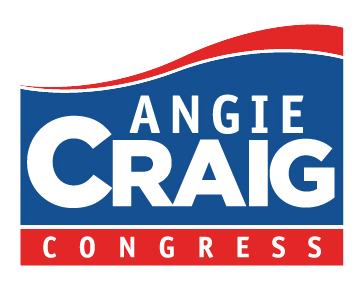By: APG of East Central Minnesota Editorial Board
10/3/2020
The best tonic for our cratered COVID-19 economy is deep suppression of both virus and disease through vaccines and better therapeutics. We long to return to a semblance of normalcy and full employment.
The previously booming U.S. economy has begun to heal after gross domestic product fell 5% in the first quarter and plunged 31.7% in the second. Candidates for federal office may not have precise prescriptions for an ever-changing situation, but voters deserve to know the contours of how they would bind our economic wounds in the moment while setting the stage for a post-pandemic economy.
This editorial board regrets Congress and President Trump have been unable to agree on a new stimulus plan, especially as unemployment benefits expire, leaving many families with undeserved worries about rent, food and medicine.
Relief programs such as the broadly agreed-upon, $2.2 trillion CARES Act also require shared recognition that the bill comes due. The $25 trillion national debt is not sustainable. The Tax Cut and Jobs Act of 2017 — which, among other things, lowered the corporate tax rate from 35% to 21% and was estimated to add $2.3 trillion in debt over 10 years — is also not sustainable.
Social Security and Medicare funding need attention. We urge our leaders to raise the income cap for Social Security taxation to stabilize the funds long into the future.
We believe comprehensive immigration reform is vital to balance jobless rates. Even when we again approach full employment, we will still need more workers for tough-to-fill openings.
U.S. Senate
U.S. Sen. Tina Smith is concerned about the nation’s deficit and debt, and said grappling with it will be a difficult task.
The budget was out of balance before the health care crisis, after the 2017 tax bill lowered revenue. The government needs to spend now to help families and businesses, she said. Returning balance will require both raising revenues and cutting expenses.
Restoring and growing jobs is important. The government should create a fair and even playing field, and let the private sector do what it does best – innovating, growing and creating jobs, she said. She supports expanding trading opportunities and investing in education and job training.
Regarding immigration, Smith said, “There is a need for reform to bring common sense, fairness and humanity to our immigration system.”
Social Security is a fundamental commitment, and she does not support raising the benefit age. Social Security would have long-term solvency if we increased the salary cap for individuals. As for Medicare, one of the biggest cost drivers is prescription drug prices. Smith said Medicare should be able to negotiate prices on medicines.
Efforts to establish a teleconference interview with Smith’s opponent, Republican Jason Lewis, were unsuccessful. The editorial board offered Lewis an opportunity to respond in writing to the remaining topics. To date no responses have been received.
In a recent Duluth debate, Lewis said the national lockdown must be lifted now to allow the nation to move forward and revitalize the economy. Any additional stimulus funds must include provisions for agriculture and those hurt the most by the shutdown, he said. Business needs the opportunity to return to the levels that existed before the pandemic. He also opposes any kind of tax hike.
2nd Congressional District
The sudden death of candidate Adam Weeks of the Legalize Marijuana Now Party is expected to delay the 2nd District election from Nov. 3 to a Feb. 9 special election.
Below are the editorial board’s summary of the economic positions of U.S. Rep. Angie Craig, an Eagan Democrat seeking a second term, and her Republican challenger, Tyler Kistner of Prior Lake.
Craig is one of the moderate House Democrats asking their leader, Speaker Nancy Pelosi, to write a new COVID-19 stimulus bill that will meet the Republican Senate and White House “in the middle.”
Failing to spend stimulus dollars now could lead to worse debt and deficit problems down the road, said Craig, who supports letting the 2017 Republican tax cuts – which “really truly only benefited the top 5 percent in this country” – expire.
Kistner, who served in the Marine Special Operations Forces, opposes tax increases and supports cutting spending on “outdated” programs, including “old legacy programs” in the Department of Defense.
The best way to mend the COVID-19 economy is to reopen businesses and get people back to work, he said, adding that the expired $600 weekly federal unemployment benefit paid this summer was “way too high.”
Craig said she supports funding two years of community college or trade school after high school and said the federal government has a “partnership role” in getting people back to work.
Craig said she supports the type of comprehensive immigration reform that the Senate passed with 68 votes in 2013. Politicians must “stop using immigrants and people of color for political purposes,” Craig said.
“My farmers here in this district are just begging for year-around ag labor,” she said.
Kistner said farms and blue-collar trades are the employers most in need of immigrant laborers, who must come legally.
“I’m not a fan of the merit system, I’m a fan of ‘You’re the first one in line, you’re the first one to get processed through,’ ” he said.
Craig said she supports lifting the income limit on Social Security taxes to $400,000. Taxing the high-wage earners will sustain the program through the end of the century, she said.
Kistner said he would fight to protect senior citizen benefits, and solutions “are something that we’re going to have to continue to look at as we continue to push forward with this greater deficit and the budget that we’re facing.”
